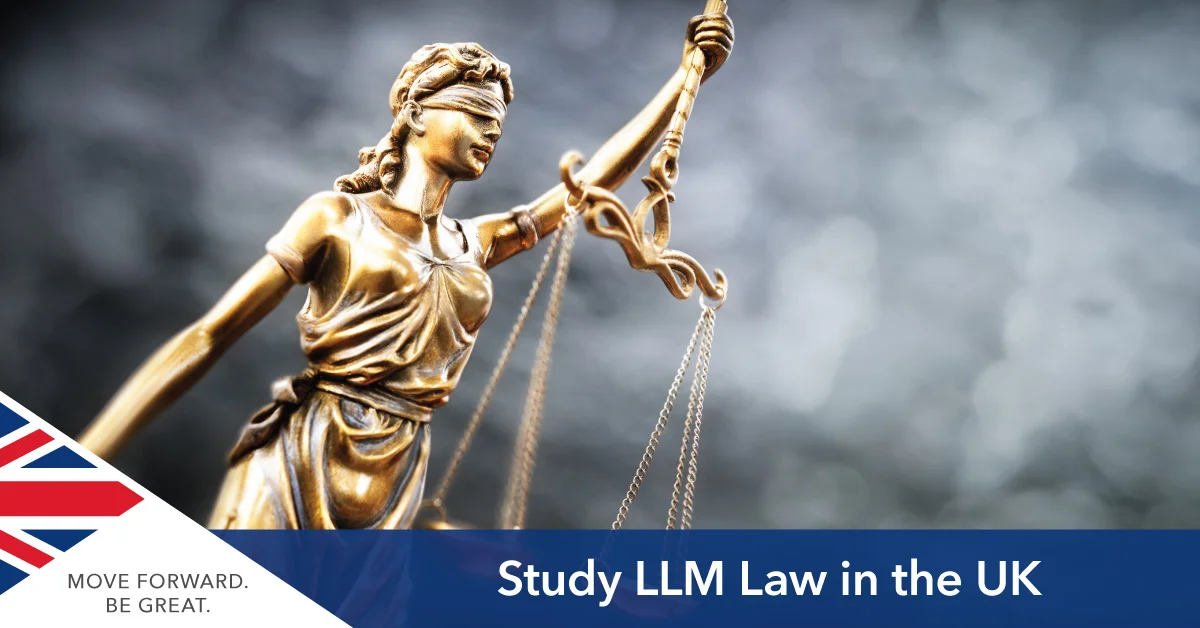LLM Corporate Law is a postgraduate degree focusing on corporations' legal, financial, economic, and governance aspects. LLM Corporate Law provides students with an in-depth understanding of the laws, regulations, and practices that govern companies' formation, management, and operation.
An LLM in Corporate Law covers various topics such as corporate governance, economic analysis of corporate law and finance, mergers and acquisitions, capital markets, and corporate social responsibility. It also explores the interplay between national and international corporate law and the role of corporations in the global economy. The programme is designed for law graduates, legal practitioners, and professionals working in the corporate sector who want to specialise in corporate law. It aims to equip students with the knowledge and skills needed to handle complex legal and financial issues that corporations face and provide them with a global and interdisciplinary perspective on corporate law and governance.
Learn more about this unique law specialisation below, and if you would like to begin your application to study law in the UK, arrange a free consultation with SI-UK India today.
What is LLM in Corporate Law?
LLM in Corporate Law in the UK is a 1-year, full-time postgraduate course that delivers knowledge beyond a narrow focus on legal rules. It also situates the study of corporate law in a wider and interdisciplinary context. As an LLM company law student in the UK, a candidate will have the opportunity to develop wide knowledge across the main developments and key areas of economic analysis of corporate law and finance, comparative and international corporate governance and UK company law.
The course will provide students with an in-depth understanding of legal, economic governance and financial matters. Compulsory modules of LLM corporate law include:
- Corporate Finance and Securities Law
- Insolvency Law
- International Corporate Governance
- Postgraduate Legal Research Skills
Students will also have the opportunity to choose from optional modules such as:
- Alternative Dispute Resolution
- Intercultural Business and Organisational Communication
- International Competition Law
- International E-Commerce Law
- International Tax Law and Policy
- Business Thinking and Commercial Awareness
- Cyberlaw: Regulation of Cyberspace
- Environmental Law
- Financial Crime
- World Trade Organisation Law
Entry Requirements for Studying LLM in Corporate Law
To study LLM in Corporate Law, students need first to complete a bachelor’s degree, and minimum entry requirements at top law universities in the UK are generally as follows:
- A bachelor’s degree with no less than 2:1 (Hons) in law, finance, economics, business or a related area
- GPA of 8 on a 10-point scale
English Language Requirements
- IELTS: 6.5 overall, with no less than 6.0 in any component, or
- TOEFL-iBT: Total 100 with at least 25 in writing and 23 in each component, or
- CPE or CAE: Total 185 with at least 185 in writing and 176 in each component or
- PTE Academic: 70 overall, with at least 70 in the writing component and 62 in each component
Popular LLM in Corporate Law Universities in the UK
University of Cambridge
The University of Cambridge is the best LLM university in the UK. Its Masters in Corporate Law (MCL) programme offers students a thorough understanding of the legal and regulatory framework surrounding corporate governance and finance. The LLM course offerings include Corporate Finance, Corporate Governance, Corporate Insolvency, Competition Law, and International Financial Law. Students take one LLM corporate-oriented course and four MCL-specific modules during their studies. These courses provide a deep dive into specific areas of corporate law and are taught by a team of expert corporate lawyers and external instructors.
The MCL-specific modules on offer cover a range of topics such as Comparative Corporate Governance, Corporate Taxation, International Merger Control, The Law Firm as a Business, Private Equity, Shareholder Activism, Shareholder Litigation, and Law and the Digital Economy: The Corporate Dimension. These modules are designed to provide practical insights and academic rigour to enhance students' credentials as business lawyers or prepare them for careers in the academic or regulatory sectors.
- Course offered: Master's Degree in Corporate Law (MCL)
- Entry requirements: A Level: A*A*A; IB: 40-42 points, with 776 at Higher Level
- International fees: £ 40,000
University College London
The Corporate Finance module is offered by University College London's Faculty of Laws. It explores how companies finance their operations, including raising equity or debt capital, mezzanine financing, and retained earnings. The module is approached from both a finance and a legal perspective, discussing basic concepts of corporate valuation, capital structure theories, and legal frameworks governing the capital structure of companies. The second part of the module focuses on the legal and regulatory requirements that apply when a company raises equity or debt capital.
You will get acquainted with the extensive requirements of securities regulation that govern the public offering of equity and debt securities and their listing on regulated markets. The module also covers the interaction of the regulatory environment and current market practice. By the end of the module, students will have a good understanding of the legal environment relating to corporate finance, key concepts of corporate finance, the relationship between law and corporate finance, and the regulatory mechanisms in light of corporate finance theory.
- Course offered: LLM Corporate Finance
- Entry requirements: Grades: A*AA; No specific but at least two A-level subjects
- International fees: £32,100
King’s College London
The Dickson Poon School of Law at King's College London offers an online Master of Laws (LLM) in International Corporate & Commercial Law. The programme aims to provide a deep understanding of the areas of law governing the highly complex, sophisticated and dynamic corporate and commercial worlds that are increasingly global in character. It is designed for students who wish to pursue a career within corporate or commercial law or to work in the corporate and commercial sectors, but not necessarily within a legal profession.
The LLM corporate law online covers the regulation of mergers and acquisitions, corporate form and its issues, corporate actors, international corporate finance, trade, shipping, finance, energy, investment-related transactions, dispute resolution, international commercial arbitration, and international corporate insolvency. Students will learn from world-leading academics and lawyers with decades of commercial experience, expanding their transnational network of commercial law professionals. The course is taught entirely online, with six entry points throughout the year to provide maximum flexibility.
- Course offered: LLM in International Corporate & Commercial Law
- Entry requirements: A 2:1 honours degree (or above) in a single or joint degree in Law or international equivalent.
- International fees: £21,552
University of Edinburgh
The LLM in Corporate Law at the University of Edinburgh, one of the best universities for LLM in the UK, offers an extensive and interdisciplinary study of the legal, economic, financial, and governance matters involved in the lifecycle of corporations. The course offers a wider perspective beyond legal rules and focuses on corporate law's comparative and interdisciplinary context. This programme is designed to provide students with an in-depth knowledge of the latest developments and critical issues in corporate law.
The LLM programme includes three primary areas of study: comparative and international corporate governance, economic analysis of corporate law and finance, and UK company law. These three areas of study allow students to develop a critical understanding of the key issues and recent developments in corporate law. Graduates will gain a sound understanding of the fundamental concepts of economics and governance necessary for an integrated understanding of the context in which corporate law and regulation operate.
- Course offered: LLM in Corporate Law
- Entry requirements: A minimum 2:1 honours degree from a UK university, or its international equivalent, in law.
Queen Mary, University of London
The Commercial and Corporate Law LLM by Queen Mary, University of London, focuses on the regulation of international trade, the structure and management of international business transactions, and the economic foundations of trade and corporate law. The programme offers a variety of taught modules to choose from, allowing students to tailor their degrees to their career goals. The modules cover topics such as global and regional regulation of international trade, economic foundations of trade and corporate law, and structuring and managing international business transactions.
The course suits students who want to pursue a career in commercial and corporate law or international business. Students can access online databases and collections, the Postgraduate School of Law Centre, the Graduate Centre at Mile End, Queen Mary’s Law Library, and the European Documentation Centre. The programme also offers access to the University of London’s Institute of Advanced Legal Studies and the Library at Senate House.
- Course offered: LLM in Commercial and Corporate Law
- Entry requirements: A 2:1 or above at the undergraduate level in Law or a degree with substantial law content.
- International fees: £27,500
Life as a Corporate Lawyer
The job of a corporate lawyer is to advise their clients on their responsibilities, rights as well as their duties under the law. When an organisation hires someone as their corporate lawyer, the candidate will be responsible for handling a variety of legal tasks that include mergers, corporate taxes, corporate structure issues, acquisitions, employment law as well as government reporting.
Company lawyers are also accountable for safeguarding the legality of commercial transactions, advising corporate employees, representing corporations as well as advising the corporate employees on their responsibilities and duties.
Company lawyers also specialise in more than one area, including tax law, intellectual property, bankruptcy, securities or zoning. Though most corporate lawyers work for organisations, some can be self-employed or work with a law or legal consultancy firm.
Study LLM in Corporate Law in the UK
Do you want to study a corporate law course in the UK? Book a free consultation with SI-UK India today.




 I sincerely thank SI-UK for getting me accepted to UCL. The MSc in Urban Development and Planning is extremely competitive, but the right guidance provided by SI-UK made my dream of studying at University College London a reality. The services were exceptional from beginning to end.
I sincerely thank SI-UK for getting me accepted to UCL. The MSc in Urban Development and Planning is extremely competitive, but the right guidance provided by SI-UK made my dream of studying at University College London a reality. The services were exceptional from beginning to end. 

